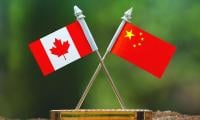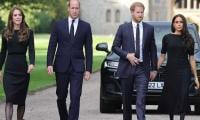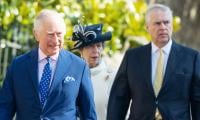Domestic foreign policy issues
A country’s leadership is supposed to serve its economic and security interests, advance people’s wellbeing, and respond to their aspirations for progress.
These objectives are achieved with a combination of domestic and foreign policies that are in synch. A dynamic home front is the platform for success abroad; and poor domestic policies undermine the foreign policy.
If there is something wrong with the foreign policy, it is thus often because something is wrong with the domestic policy. And that is largely due to the context in which the policy is made, such as the country’s political system, social structure, power balances, and the relationship between people’s interests and those of the ruling elite. It is the context that provides the enabling or disabling environment for the emergence of good leadership, and crystallization of national priorities. All that affects the integrity of the governing institutions and quality of policies.
The country’s 75th anniversary is a compelling moment to see how Pakistan has fared as a nation, particularly as far as the foreign policy is concerned. For Pakistan, which faced existential challenges in its early years, the foreign policy was the critical external arm to its inevitable struggle for survival and stability. The pioneering spirit of the population, and the clarity of purpose, idealism and ambition of the powerful civil-military bureaucracy set the country on the road to survival and stabilization, giving its diplomats abroad something to defend and be proud of. Foreign policy and domestic polices worked hand in hand in pursuit of common objectives.
The bureaucracy succeeded where the politicians had failed. And in the process took advantage of the leadership vacuum to permanently stake a share in power. Politicians had missed the bus; and never recovered to establish their supremacy. Nor did they try.
In the 60s the military regime continued Pakistan’s successful trajectory of advancing security and stability – though sadly at the expense of political process, for which Pakistan had to pay dearly later on. To its credit, it went on to generate economic development policies and institutions that not only provided a platform for future progress but also gave Pakistan an enviable image abroad. Pakistan had arrived. And it looked like a reliable and viable partner for the international community. Pakistan’s diplomacy both bilateral and multilateral was boosted by its domestic performance.
Pakistan had taken good advantage of the cold war and exploited regional geopolitics, first towards an alliance with the US and then to open the door to China. The alliance with Washington reduced the power imbalance in South Asia, increasing Pakistan’s sense of security. And the opening to China gave Pakistan an alternative to the American support. Geopolitics, China’s regional rivalry with India and Pakistan’s security needs were in perfect fit.
But with the wars of 1965 and 1971, Pakistan frittered away much of this advantage. Since then, neither the country nor its foreign policy have been the same. It continued to have pockets of good foreign policy like strengthening, with the help of China, the foundations of Pakistan-China strategic relations, Pakistan’s help in facilitating US-China dialogue, the establishment of close ties with oil rich Arab countries, and a brief spell of Bhutto’s bilateralism. But after 1977 the best days of Pakistan’s foreign policy were behind it.
Since then Pakistan has no doubt benefited from the strategic interests of big powers, like the US and China, on account of its geopolitical location and the services of its professional army. But except for the relations with China and the successful completion of the nuclear programme there has been no lasting achievement. Pakistan withstood pressure on the relationship with China as well as on the nuclear programme. Diplomats defended the programme admirably to resist bilateral pressures specially from the US, and fight multilateral challenges.
To their credit, the security establishment and the diplomats helped Pakistan hold its own against India. But the country did not try to derive lasting benefit from its external relationships by developing its own strengths.
Pakistan became a rentier nation. Politicians had joined other centres of power for the common defence of their class and institutional interests. As all institutions, with the help of the religious orthodoxy, undermined the political process, contributing to its crisis of governance, the country became dependent on external financiers serving their strategic purposes sometimes at the expense of Pakistan’s own interests. And at home the ruling elite pursued political power to the sacrifice of people’s interests.
The world was changing but unfortunately Pakistan’s foreign policy kept beating to the rhythm of an extinct world. Prolonged neglect of the economy and the obsession with geopolitics and a misplaced focus on religion that served the interests of Pakistan’s benefactors as well as its own regional ambitions cost the country dearly, and Pakistan began losing its way in the 90s both at home and abroad.
Pakistan came to be seen as a source of security concerns by many countries. It did become a frontline state yet again in another war – the war on terror. But along with this status came greater scrutiny of Pakistan itself as it had become both a part of the problem and the solution, a partner as well as a target, an ally but not a friend.
Pakistan’s relationship with the Taliban is a good study of our policy paradoxes. You cannot blame only the security arena. Taliban had also duped Pakistan’s intelligentsia – the Islamist and the liberal alike. One hailed them for reviving Islam’s glory, and the other nursed its anti-Americanism by applauding the Taliban as ‘anti imperialists’. Both billed them as liberators but the fact is that the Taliban were not fighting for the liberation of Afghanistan. They were fighting to replace American occupation with their own.
As for the revival of Islamic glory, it is not their brand of Islam that had achieved civilizational heights in history. And now we are paying the cost of our support for them as the Taliban-led Afghanistan has come to present a new set of problems for Pakistan without solving the old ones. One more example of how bad domestic policy affects foreign policy.
And CPEC is another area where our domestic problems might have repercussions for the foreign policy by dimming China’s confidence in us. It is a classic case of dependency syndrome as Pakistan is expecting China to take upon everything. Besides, the CPEC’s progress is being hampered by managerial conflicts, provincial rivalries, internal security issues, civil military tensions, power struggle and political uncertainty, bureaucratic bottlenecks, circular debt, and last but not least Pakistan’s underlying economic weaknesses. All this hardly makes Pakistan a serious partner. We are – as they say – living from pay cheque to pay cheque or to be more precise from loan to loan.
Pakistan’s elite has now lost all the confidence of the people. It is confused and polarized – and presiding over a fractured society. A section of the elite continues to live in the past, tapping old beaten formulae to solve Pakistan’s problems as it knows no new tricks. And another section led by a populist leader is blaming foreign powers for Pakistan’s misfortunes. A populist leader relies on charisma or emotions to bond with his followers. Then he gets addicted to adulation and keeps repeating the same medicine. As the ‘last hope’, he becomes the cause, not the country whose problems never really get properly examined and explained. Imran Khan has simplified his message. You have to get rid of “ghulami”. But it is not ‘slavery’ that has made Pakistan weak. It is weakness that has enslaved Pakistan. And to gain strength you conciliate not alienate, and befriend not confront big powers.
Though for years diplomats tried to overcome Pakistan’s diminished international standing and problems at home to punch above their weight, that is no longer possible. The gap between Pakistan’s diplomacy and its foreign policy has now closed.
Pakistan may not be isolated but is certainly stranded. And it continues to live dangerously. That is sad. Pakistan had so much going but it has squandered its strengths and treasured its weaknesses.
The writer, a former ambassador, is adjunct professor at Georgetown University and senior visiting research fellow at the National University of Singapore.
-
 China Cuts Anti-dumping Duties On Canadian Oil Imports After Final Trade Decision
China Cuts Anti-dumping Duties On Canadian Oil Imports After Final Trade Decision -
 Prince Harry, Meghan Markle Make Major Change To Strategy To Please Royal Family
Prince Harry, Meghan Markle Make Major Change To Strategy To Please Royal Family -
 Chester Bennington’s Mental Health Story And Lasting Legacy
Chester Bennington’s Mental Health Story And Lasting Legacy -
 John Cusack Gears Up To Give Fans Exciting Surprise On Late-night Television
John Cusack Gears Up To Give Fans Exciting Surprise On Late-night Television -
 Yerin Ha Opens Up About Shocking Diagnosis Post ‘Bridgerton’ Season 4
Yerin Ha Opens Up About Shocking Diagnosis Post ‘Bridgerton’ Season 4 -
 Meghan Markle, Harry Leave King Charles, Prince William Furious With Latest Move
Meghan Markle, Harry Leave King Charles, Prince William Furious With Latest Move -
 NASA Announces New Artemis Moon Mission Aimed At Expanding Astronauts’ Exploration Efforts
NASA Announces New Artemis Moon Mission Aimed At Expanding Astronauts’ Exploration Efforts -
 Everything To Know About Justin Bieber's Facial Paralysis
Everything To Know About Justin Bieber's Facial Paralysis -
 Morgan Stanley Predicts AI To Replace Tasks Not Workers
Morgan Stanley Predicts AI To Replace Tasks Not Workers -
 Anthropic Dario Amodei Calls White House Response ‘retaliatory’ In AI Safety Dispute
Anthropic Dario Amodei Calls White House Response ‘retaliatory’ In AI Safety Dispute -
 Tia Mowry Breaks Silence On Angelina Jolie Asking 'unbelievably' Personal Question: 'Wilder'
Tia Mowry Breaks Silence On Angelina Jolie Asking 'unbelievably' Personal Question: 'Wilder' -
 Savannah Guthrie Speculations 'sadly' Coming True About Mother Nancy
Savannah Guthrie Speculations 'sadly' Coming True About Mother Nancy -
 Trump Administration Warns Of Slow Payouts For Tariff Refunds Amid Intensifying Trade Disputes
Trump Administration Warns Of Slow Payouts For Tariff Refunds Amid Intensifying Trade Disputes -
 Princess Beatrice 'far From Comfortable' After Father Andrew's Arrest
Princess Beatrice 'far From Comfortable' After Father Andrew's Arrest -
 Sarah Ferguson’s Dual Cancer Journey
Sarah Ferguson’s Dual Cancer Journey -
 GTA 6 Security: Rockstar Blocks Leaks Ahead Of Launch
GTA 6 Security: Rockstar Blocks Leaks Ahead Of Launch



